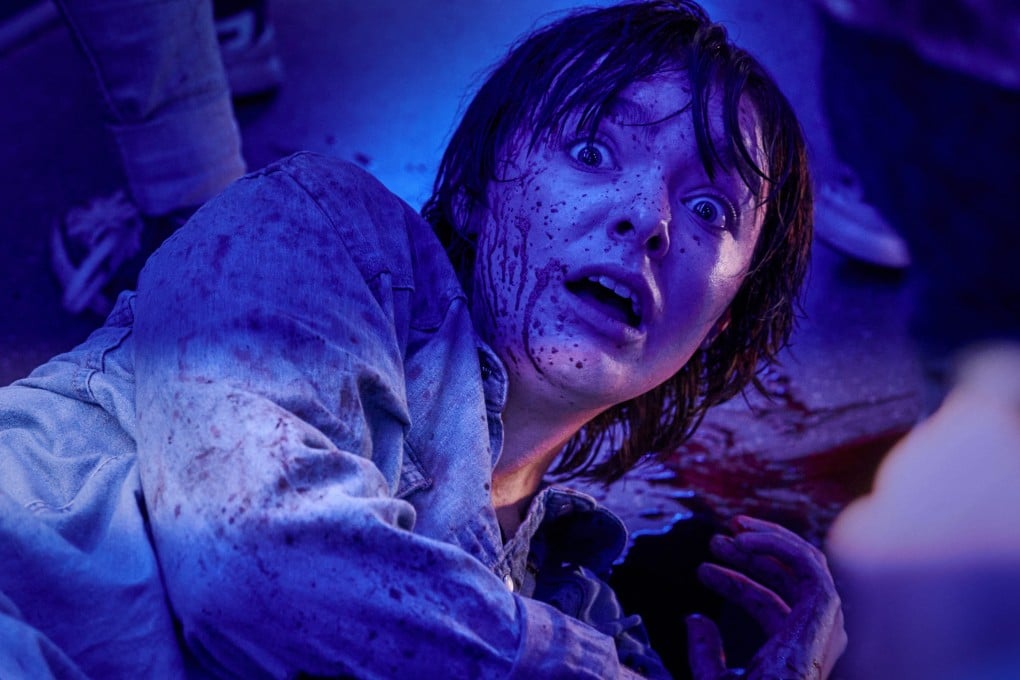Review | Netflix movie review: Texas Chainsaw Massacre – Leatherface is back in gory sequel that takes on prejudice and violence in America
- Elsie Fisher plays Lila, survivor of a high-school shooting, who joins her sister and the latter’s partner who’ve taken over a rural town and riled some locals
- Leatherface’s fury and his power tool are unleashed on a busload of millennials in the stand-out sequence, but the social commentary can’t match Hooper’s

3/5 stars
Tobe Hooper gleefully claimed that his visceral and deeply unsettling 1974 shocker The Texas Chain Saw Massacre was based on real events. Though tenuously inspired by Ed Gein, a murderer and cannibal in the US state of Wisconsin, the film was mostly fictitious, and ironically includes only a single death by the eponymous arboreal power tool.
Regardless, the film’s notoriety, commercial success and subsequent influence on the horror genre has inspired no fewer than eight official sequels, prequels and remakes in the decades since.
David Blue Garcia’s confusingly titled Texas Chainsaw Massacre, produced by Legendary and released exclusively on Netflix, serves as a direct sequel to Hooper’s 1974 film, reintroducing that film’s archetypal “final girl” Sally Hardesty, with Olwen Fouéré assuming the role originally played by the late Marilyn Burns.
Elsie Fisher, the breakout star of Bo Burnham’s Eighth Grade, stars as Lila, survivor of a high-school shooting, who is dragged to the dilapidated ghost town of Harlow, Texas by her older sister, Melody (Sarah Yarkin). Together with her business partner Dante (Jacob Latimore), Melody has spearheaded an entrepreneurial takeover of the town, but they are met with disdain and resistance by the few remaining residents.